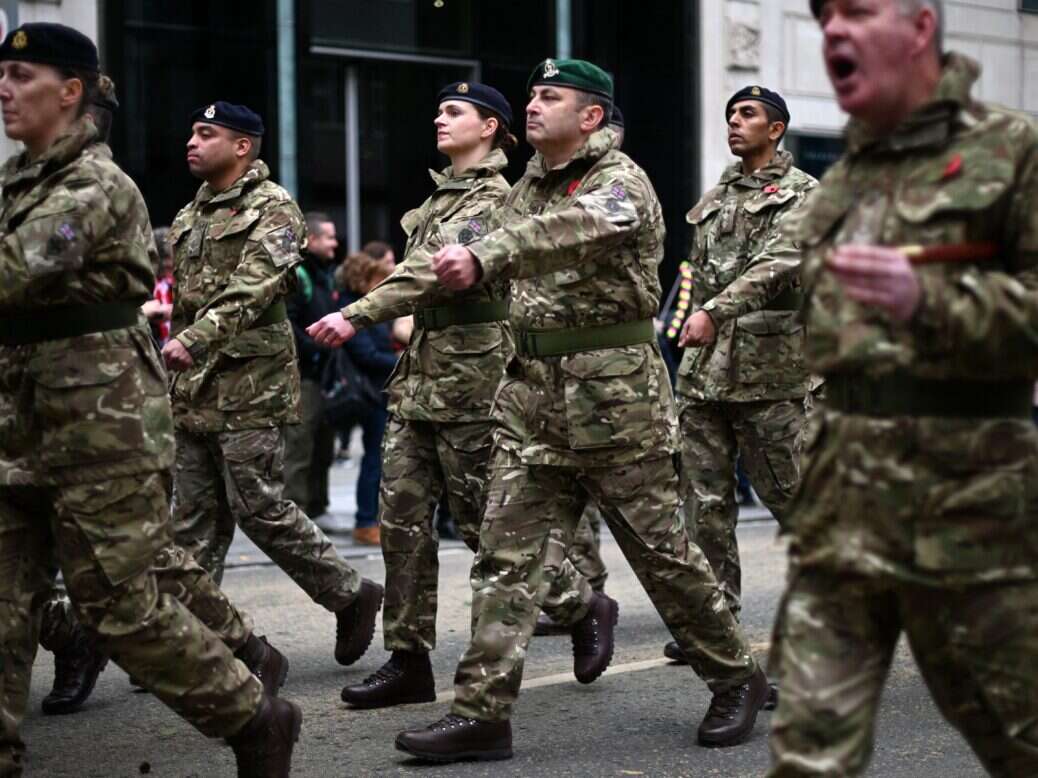
Thomson Reuters signed and then backed out of a pledge to support the British armed forces after its journalists feared it could endanger colleagues working abroad.
The information company, which is the parent of the Reuters news agency, signed the UK Government’s Armed Forces Covenant, a voluntary pledge businesses can back to demonstrate their support for the armed forces community, on 31 August.
But current and former Reuters journalists later expressed concerns that the pledge was not compatible with the requirements for independence and impartiality in the agency’s trust principles.
The pledge required Thomson Reuters to promote the fact it is an “armed forces-friendly organisation” to clients and the wider public, support national events such as Armed Forces Day, Reserves Day, the Poppy Appeal Day and Remembrance activities, and fundraise for Armed Forces charities.
Thomson Reuters said it had decided to withdraw to protect the “safety and neutrality” of Reuters journalists.
The news agency’s staff feared that if it was seen as being supportive of the British armed forces or foreign policy it could put reporters working in certain countries, where British soldiers are not seen as a force for good, at risk.
According to The Baron, which reports on news of interest to current and former Reuters staff, three senior editors – editor-in-chief Alessandra Galloni, global editor of ethics and standards Alix Freedman and global managing editor of news publishing Simon Robinson – were included in a group that reviewed the decision after concerns were raised.
Thomson Reuters said on Wednesday it had signed the pledge as part of its commitment to being an inclusive employer, as an extension of its support for the annual Poppy Appeal, and “and to make our existing inclusive recruitment practices clear to the UK armed forces community”.
“After careful reflection however, we have shared with the organisers of the initiative that we have decided we must withdraw our signature to preserve the safety and neutrality of our reporters.
“The covenant is not affiliated with any political party and the initiative was signed with the best intentions, but our participation led to concerns that such a public pledge could undermine the Thomson Reuters Trust Principles and compromise the newsroom’s independence and safety of our journalists.
“We would like to underscore that this decision, made in the interests of the safety of our Reuters colleagues, does not affect our deep commitment to build on our work to be an inclusive, equitable and diverse organisation that supports people from all backgrounds, including military veterans.”
Former Reuters editor-in-chief Michael Reupke wrote on The Baron that it was “sheer lunacy” that “at one stroke discards the principles of objectivity and impartiality for which hundreds of us worked for decades.
“It makes a nonsense of Reuters worldwide reputation as THE reporter to be believed and trusted.”
Paul Holmes, a former bureau chief and editor who spent 23 years at Reuters, described the decision as “dangerous” but acknowledged the Thomson Reuters staff who signed the pledge would have had “decent motives” for veterans.
“As a reporter in Bosnia, I was once able to explain to a military interrogator while a Reuters cameraman and I were being detained under armed guard that we could not tell him how an opposing side’s forces were deployed because as Reuters journalists we were required to be independent and strictly neutral,” he said.
“Remarkably, it worked. I do not believe it would work today if the opposing side were the British army (or any other western army for that matter, now that Reuters has been so closely associated with ‘the West’).”
Rodney Pinder, formerly Reuters’ global editor of television news, said the decision had “casually” thrown away respect for Reuters won for its independence and lack of bias.
And ex-chief executive Sir Peter Job said: “Correspondents often need the help of the military in dangerous places around the world. We do our job and they do theirs, often with mutual respect. These are business relationships.
“For management to see them in any other way indicates a lack of understanding, or lack of interest in our editorial determination to side with nobody. In a world in which partiality is rife, the asset of impartiality is, now more than ever, not one to be trifled with.”
A list of the companies that have signed the Armed Forces Covenant is available on the Government website. No major news media organisations have signed up although a noteworthy inclusion is JPI Media’s The News, which serves Portsmouth, a naval city.
Picture: Daniel Leal / AFP via Getty Images
Email pged@pressgazette.co.uk to point out mistakes, provide story tips or send in a letter for publication on our "Letters Page" blog
